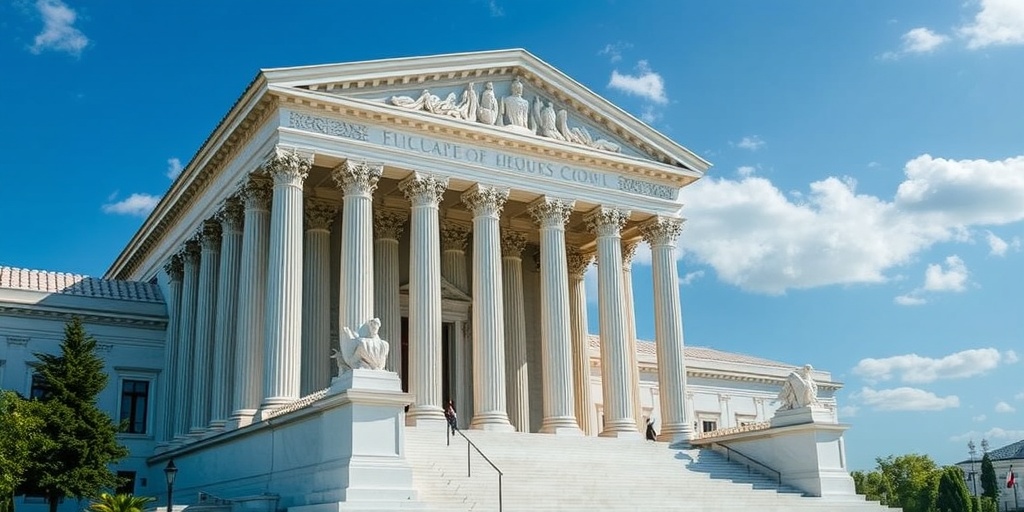Now Reading: Federal Judge Extends Injunction on NIH Research Funding Cuts
-
01
Federal Judge Extends Injunction on NIH Research Funding Cuts
Federal Judge Extends Injunction on NIH Research Funding Cuts

Federal Judge Issues Injunction to Halt NIH Funding Cuts Amid Ongoing Court Case
A federal judge in Massachusetts has ordered the National Institutes of Health (NIH) to maintain its current funding levels for medical and scientific research, postponing planned cuts that could have significant repercussions for universities and hospitals across the nation. Judge Angel Kelley’s ruling provides critical relief to institutions that are heavily reliant on federal support during a time when the case surrounding these funding changes proceeds through the courts.
The controversy originates from a proposal put forth by the Trump administration aimed at revising the funding allocation formulas utilized by the NIH. Specifically, the administration has suggested implementing a cap on what it designates as “indirect costs,” which cover essential expenses such as utilities, building maintenance, and support personnel for research projects. This proposed change would limit these indirect funds to 15 percent of the grant dollars allocated by the NIH, a move that many in the scientific community fear could drastically undermine the infrastructure necessary for conducting vital research.
The case, which consolidates multiple lawsuits initiated by coalitions consisting of Democratic states, educational institutions, and medical associations, seeks to prevent the NIH from implementing this funding cap. Advocates for the lawsuits argue vehemently that the proposed changes would lead to catastrophic budget cuts for numerous schools and hospitals. They contend that such cuts would force institutions to bear significant new financial burdens to maintain research environments, which could ultimately stifle innovation and threaten the progress of ongoing medical studies.
In her recent order, Judge Kelley emphasized the need for continuity in federal research funding. On February 10, she had already mandated a pause in any changes to funding, citing concerns that the NIH’s proposed modifications could jeopardize ongoing research projects. "This notice impacts thousands of existing grants, totaling billions of dollars across all 50 states," Kelley wrote in her previous ruling. She expressed serious concern over the potential disruption to clinical trials and innovative medical research, noting that these changes could devastate not only research endeavors but also critical patient care systems.
On Wednesday, Judge Kelley reaffirmed her position, citing ongoing apprehensions over the potential fallout of the proposed funding changes. She issued a preliminary injunction that would delay any alterations to NIH funding until the court has thoroughly reviewed the case. Her rationale underscored the "chaos and confusion" that could ensue if states and institutions were compelled to confront the proposed policy changes separately, potentially leading to a fragmented response across the country.
“Absent a nationwide injunction, institutions across the country will be forced to operate with the same uncertainty, resulting in the types of irreparable harm that a preliminary injunction is meant to prevent,” Kelley stated, reinforcing the necessity for a unified legal approach to combat the funding cuts.
The implications of this ruling extend far beyond immediate funding levels; they encompass the broader landscape of research and development within the medical and scientific community. Many researchers and institutions are now left grappling with the unpredictability of federal funding as they seek to advance public health initiatives. The NIH is tasked with supporting critical areas of research that lead to breakthroughs in health, from cancer studies to infectious disease responses.
The response from the scientific and educational community has been overwhelmingly supportive of Judge Kelley’s decision. Leaders from various institutions have voiced gratitude for the pause on planned funding cuts, recognizing that continuity is paramount for sustaining research efforts aimed at addressing complex health challenges.
As the case continues to unfold in court, the NIH remains in a position of uncertainty, tasked with navigating the legal landscape while maintaining its critical role in funding pivotal research. The outcome of this legal battle could have lasting effects on the future of medical research funding in the United States, shaping the framework through which essential health advancements are supported and sustained.
In conclusion, as the legal proceedings progress, all eyes will be on the implications for funding and the potential ripple effects on research and healthcare systems nationwide. Judge Kelley’s injunction serves as a crucial barrier against potentially detrimental changes, allowing stakeholders to hope for a resolution that adequately supports the needs of the research community and ultimately benefits public health.
Stay Informed With the Latest & Most Important News
Previous Post
Next Post
-
 01New technology breakthrough has everyone talking right now
01New technology breakthrough has everyone talking right now -
 02Unbelievable life hack everyone needs to try today
02Unbelievable life hack everyone needs to try today -
 03Fascinating discovery found buried deep beneath the ocean
03Fascinating discovery found buried deep beneath the ocean -
 04Man invents genius device that solves everyday problems
04Man invents genius device that solves everyday problems -
 05Shocking discovery that changes what we know forever
05Shocking discovery that changes what we know forever -
 06Internet goes wild over celebrity’s unexpected fashion choice
06Internet goes wild over celebrity’s unexpected fashion choice -
 07Rare animal sighting stuns scientists and wildlife lovers
07Rare animal sighting stuns scientists and wildlife lovers





















